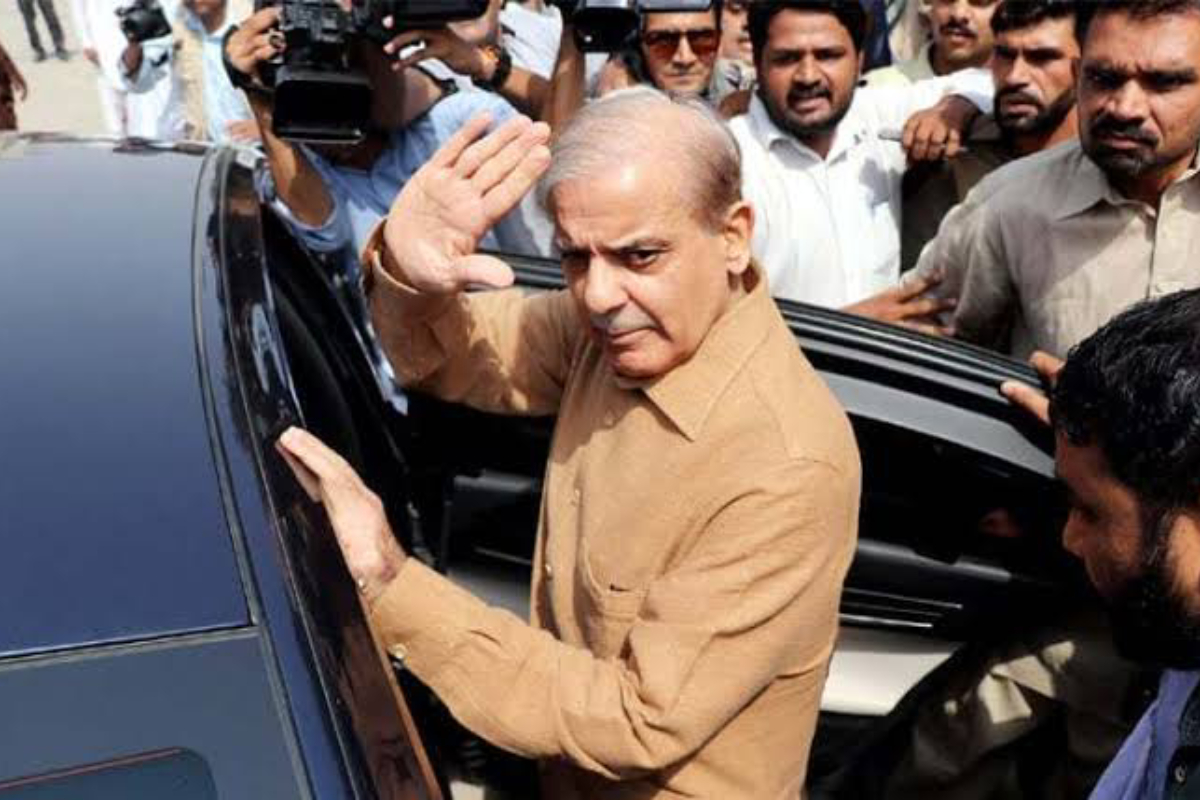Desperate for a $6.5 million International Monetary Fund (IMF) bailout, Pakistan Prime minister Shahbaz Sharif holds a virtual meeting with IMF mission chief Nathan Porter, just before they left Islamabad on the night of January 9.
The meeting was termed a last-ditch effort to save the negotiations from a complete collapse of the deal after both Pakistan and the IMF failed to reach any consensus.
The 10-day meeting, which began on January 30th, ended with the IMF standing firm on the deliverance of its recommendations. However, the deal looked to be in the trash as the IMF team refused to share the Memorandum for Economic and Financial Policies (MEFP) with Pakistan Finance Minister Ishaq Dar after he failed to provide any concrete commitments to the IMF.
Putting on a brave face FM Dar insisted that the meeting between IMF mission chief Porter and PM Sharif was “nothing unusual”.
Following the virtual meeting with Porter, Prime Minister Sharif was able to persuade the IMF mission chief to share the draft MEFP with his government.
According to sources, PM Sharif personally assured the IMF mission chief that IMF recommendations would be followed in letter and spirit.
“At 9 am today Memorandum of Economic and Financial Policies (MEFP) was received and the government will look into it over the weekend,” Dar said, confirming that the IMF had shared MEFP with the embattled nation.
The finance minister is now set to review the MEFP and hold a virtual meeting with the IMF on January 13.
The staff-level agreement between the two parties remained unsigned, despite Pakistan hoping that the agreement would be signed before the IMF team left Islamabad.
Downplaying the issue of an unsigned agreement, FM Dar said, “Once the draft MEFP has been shared, the two sides will discuss the policy measures outlined in the document.”
“Once these are finalized, a staff-level agreement is signed, which is then forwarded to the Fund’s Executive Board for approval,” he added.
Talking about the precarious foreign exchange reserve situation, Dar said that the commitments with friendly countries would be fulfilled and inflows would be received.
“There is nothing to worry about. This country has also survived on $414m in foreign reserves,” Dar further remarked as Pakistan’s foreign reserves fell further to just $2.7 billion.
Dar also said that there is a credibility gap between the IMF and the Pakistan government, though he blamed the previous Imran Khan-led government for this gap.
“Not only did the previous government not implement the agreement, but it also reversed it when the vote of no-confidence was brought (against Prime Minister Imran Khan),” said Dar. “The negotiations were hard, but we agreed only to what was doable,” he also said.
Dar reassured that the process to secure the bailout is still on, and virtual meetings will take place with the IMF team to unlock the first instalment of $1.2 billion from the total bailout package.
“Once the MEFP has been finalized, they (IMF) have their internal process and then a Board meeting is held. And then finally, when approval is given, (the tranche) is disbursed,” Dar said.
He further stated, “It is a standard process that cannot be shortened, and hopefully they won’t extend it unnecessarily.”
In reality, Pakistan is running out of time to save its economy from a complete collapse. Any delay in IMF negotiations brings it one step closer to complete bankruptcy. Failure to reach an agreement with the IMF during the final ten days of negotiations has pushed Pakistan to the brink of economic disaster.
Despite promising the IMF a slew of measures to secure the deal, the Pakistani government has failed to put any of the recommendations into action. For Pakistan, the IMF bailout is turning out to be a case of too little and too late.

















